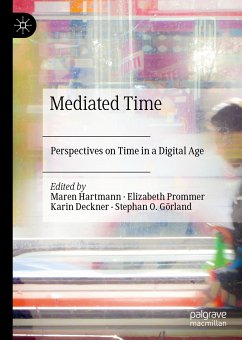It further examines specific time frames, imaginations of a media future and the past, questions of online journalism and multitasking or liveness. Bringing together authors from diverse backgrounds, this collection presents a rich combination of milestone articles, new empirical research, enriching theoretical work and interviews with leading researchers to bridge sociology, media studies, and science and technology studies in one of the first book-length publications on the emerging field of media and time.
Dieser Download kann aus rechtlichen Gründen nur mit Rechnungsadresse in A, B, BG, CY, CZ, D, DK, EW, E, FIN, F, GR, HR, H, IRL, I, LT, L, LR, M, NL, PL, P, R, S, SLO, SK ausgeliefert werden.









